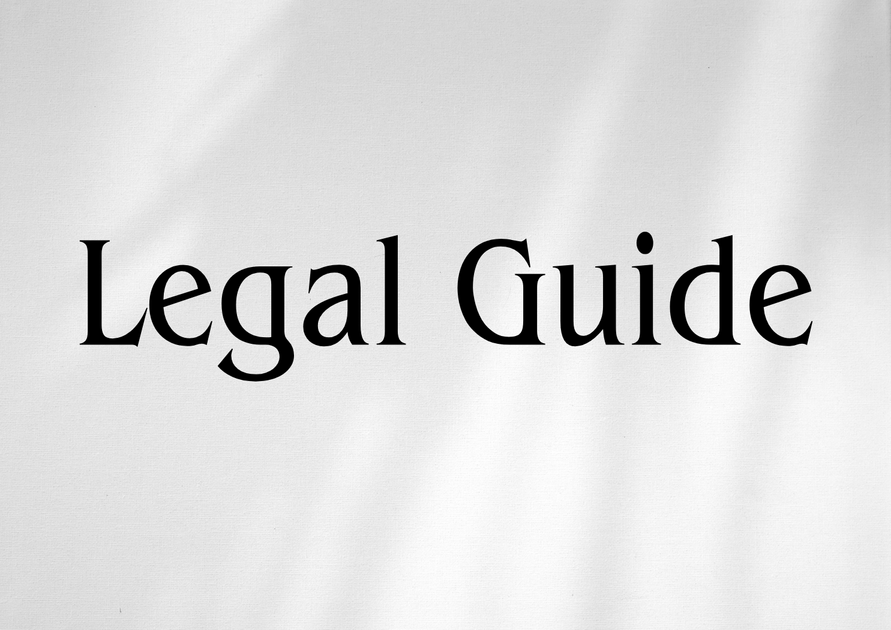Introduction
Joint Venture Agreements (JVAs) are at the heart of regional and cross-border commercial collaboration, especially in dynamic economic hubs like Qatar and the wider GCC. For UAE businesses and investors, understanding the distinct legal framework governing JVAs in Qatar is essential for risk mitigation and successful market entry. Recent legal reforms in both the UAE and Qatar have heightened compliance expectations, making it crucial for stakeholders to align their strategies with current regulations. This article delivers a comprehensive consultancy-grade analysis of Qatar’s legal landscape for joint ventures, targeted at business leaders, HR professionals, legal practitioners, and UAE-based investors navigating cross-jurisdictional projects. Through practical guidance, expert insights, and comparative legal analysis, readers will gain a robust understanding of the regulatory and commercial environment shaping JV arrangements in Qatar.
The increasing interconnectedness between the UAE and Qatar—particularly following the restoration of diplomatic relations in 2021—has reinvigorated business opportunities for joint investment projects, infrastructure developments, and strategic alliances. With evolving regulations, including updates in the Commercial Companies Law and foreign investment rules, staying informed and compliant is more crucial than ever. This article addresses legal nuances, compliance strategies, and risk management best practices, positioning UAE businesses for sustained success in the Qatari market.
Table of Contents
- Legal Framework for Joint Ventures in Qatar
- Core Provisions and Legal Structures for JVAs
- Formation, Registration, and Licensing Considerations
- Risk Assessment and Mitigation in JV Structures
- Comparative Analysis: Old vs New Laws
- Case Study: Navigating Compliance in a Multinational JV
- Risks of Non-Compliance and Best Practice Strategies
- Conclusion and Forward-Looking Recommendations
Legal Framework for Joint Ventures in Qatar
Commercial Companies Law – Law No. 11 of 2015 (Amended by Law No. 8 of 2021)
The primary legal foundation for joint ventures in Qatar is the Commercial Companies Law No. 11 of 2015, recently amended by Law No. 8 of 2021. The Commercial Companies Law sets out the permissible forms of business entities, structuring requirements, and operating procedures for both local and foreign investors. Joint ventures—including partnership arrangements between UAE and Qatari parties—commonly take shape through Limited Liability Companies (LLCs), partnerships, or contractual joint ventures (CJVs) without separate legal personality.
Foreign Investment Law – Law No. 1 of 2019
Another critical piece of legislation is Law No. 1 of 2019, which liberalises foreign ownership rules in many sectors, allowing up to 100% foreign ownership subject to regulatory approval from the Ministry of Commerce and Industry (MoCI). For UAE entities targeting JV arrangements in Qatar, navigating sector-specific restrictions and obtaining all necessary licences is fundamental for legal compliance.
Ministerial Guidelines & Sector Regulations
In addition to the core statutes, various ministerial resolutions and sector-specific regulations—particularly in energy, infrastructure, and technology—apply to JV operations. Entities must consider these delegated rules alongside company law to ensure seamless compliance.
Core Provisions and Legal Structures for JVAs
Types of Joint Ventures
Joint ventures in Qatar may take several forms, each carrying distinct legal and commercial implications. The main categories are as follows:
| Structure Type | Legal Personality | Common Use |
|---|---|---|
| LLC | Separate legal entity | Long-term operations, assets, shared liability |
| Contractual JV (Consortium) | No separate legal entity | Short-term projects, construction, consultancy |
| Public/Private Partnership (PPP) | Special purpose vehicle (regulated under PPP Law No. 12/2020) | Large-scale infrastructure, government projects |
Key Contractual Provisions in JVAs
Comprehensive JVAs typically address:
- Capital contribution and profit-sharing mechanisms
- Management and decision-making frameworks
- Dispute resolution and governing law
- Exit strategies, buyout provisions, and change of control clauses
- Confidentiality, non-competition, and IP protection
- Compliance with anti-corruption, anti-money laundering, and sectoral regulations
Professional Insights: Why UAE Businesses Need Tailored JVAs in Qatar
UAE investors face unique legal risks when entering the Qatari market. For example, while the UAE allows 100% foreign ownership under specific conditions (per Federal Decree-Law No. 26 of 2020 on Commercial Companies, as amended), Qatar imposes industry-based limitations that require careful analysis. A boilerplate UAE-style JVA may be insufficient in Qatar, potentially exposing parties to regulatory breaches, invalidity, or commercial disputes. Thus, obtaining expert local legal advice and customising contractual terms to address Qatari law nuances is non-negotiable.
Formation, Registration, and Licensing Considerations
Key Steps in JV Formation for UAE Investors
- Selecting the Appropriate Structure: Determine whether an LLC, contractual JV, or PPP aligns with project goals, sector requirements, and ownership limits.
- Drafting and Negotiating the JVA: Ensure clear capital contribution, management, and exit clauses, with distinct adaptation to Qatari law and sectoral regulations.
- Obtaining Approvals: Secure pre-registration approval from MoCI (for foreign-owned entities) and sectoral bodies (e.g., the Qatar Financial Centre Regulatory Authority for financial services).
- Company Registration: Register the JV entity with the Qatar Chamber of Commerce and industry-specific registries as required.
- Licensing: Obtain commercial, municipal, and environmental licences as mandated by national and local jurisdictions.
Case Example: Navigating a Cross-Border JV for Engineering Services
A UAE-based engineering firm partners with a Qatari construction company to bid for a public tender. To comply, they form an LLC with 51% Qatari ownership and 49% UAE ownership, as permitted for their sector. The JVA specifies profit sharing, management responsibilities, and dispute resolution by the Qatar International Court. The partners secure approvals from both the MoCI and the Ministry of Municipality and Environment, ensuring regulatory alignment from inception.
Risk Assessment and Mitigation in JV Structures
Common Legal Risks for UAE Businesses in Qatari JVs
- Unclear Ownership Structure: Failure to meet Qatari local partner requirements can result in void JVAs or loss of business licence.
- Inadequate Dispute Resolution: Non-specific dispute resolution clauses often prolong commercial conflicts or result in foreign judgments unenforceable in Qatar.
- Regulatory Non-Compliance: There are sectorally mandated limits on foreign investment, especially in sensitive industries such as oil & gas or media.
- Taxation Uncertainty: JV partners may face complex withholding tax, VAT, and double-taxation issues, especially if the JV structure is not tailored for local tax laws.
Compliance Checklist for JVAs in Qatar
| Compliance Requirement | Best Practice |
|---|---|
| Local Partner Requirement | Verify minimum Qatari shareholding and update in line with sectoral exceptions |
| Anti-Corruption/AML Provisions | Incorporate clauses aligned with Qatari and international standards (e.g. Law No. 20 of 2019 AML/CFT) |
| Dispute Resolution | Specify jurisdiction (Qatar courts or Qatar International Court), or include arbitration clauses referencing Qatari seat |
| Repatriation of Profits | Plan remittance structures to avoid breach of exchange controls or tax obligations |
| Labour Law Compliance | Ensure HR policies align with Qatar Labour Law No. 14 of 2004 (as amended) |
Comparative Analysis: Old vs New Laws
Evolution of JV Regulations in Qatar
Legal updates in recent years have redefined key requirements for joint ventures, particularly for foreign investors. The table below highlights crucial differences:
| Issue | Prior to Law No. 1/2019 | Current Framework (Law No. 1/2019 and Law No. 8/2021) |
|---|---|---|
| Foreign Ownership Cap | Generally limited to 49% foreign ownership for most sectors | Up to 100% foreign ownership permitted in many sectors, subject to MoCI and ministerial approval |
| Licensing | Multiple tiered approvals; slower process | Streamlined procedures, digital applications via the Single Window System |
| PPP Framework | No dedicated PPP law | PPP Law No. 12/2020 provides clarity for public-private joint ventures |
| Taxation | Higher uncertainty for foreign tax planning | Greater predictability due to Double Taxation Avoidance Agreements (DTAAs) |
Professional Insight
These reforms have dramatically expanded investment horizons for UAE-based companies, allowing for direct, majority-owned structures not previously possible. However, regulatory scrutiny has increased, requiring precise compliance and proactive legal structuring.
Case Study: Navigating Compliance in a Multinational JV
Scenario
A UAE logistics conglomerate enters a JV with a Qatari partner to deliver supply chain services for the FIFA World Cup. The JV is set up as an LLC with a 51/49 Qatari/UAE split. While drafting the JVA, they consult legal counsel to:
- Include robust compliance protocols (aligned with Law No. 20/2019 for AML)
- Appoint an independent auditor to monitor financial transactions
- Stipulate London-based ICC arbitration, ensuring enforceability of awards in Qatar under the New York Convention
- Incorporate a detailed employee secondment policy, complying with Qatar Labour Law, and cross-referencing UAE employment obligations
Outcome & Lessons
The venture successfully secured regulatory approval, managed cross-border tax efficiently, and enjoyed smooth project execution—demonstrating the value of bespoke JV structuring grounded in current legal developments.
Risks of Non-Compliance and Best Practice Strategies
Risks of Non-Compliance
- Administrative penalties, business licence suspension or revocation
- Potential criminal liability for breaches of anti-corruption or AML regulations
- Civil disputes leading to financial losses and reputational harm
- Invalidation of commercial contracts or JV arrangements
Penalties Comparison: Old vs New Regimes
| Type of Breach | Pre-2020 Regime | Current Penalties (Law No. 1/2019, Law No. 8/2021) |
|---|---|---|
| Illegal foreign ownership | Administrative warnings, fines | Licence cancellation, heavier fines, potential criminal prosecution |
| AML/CFT breaches | Lesser regulatory oversight | Severe penalties, including imprisonment, heavy fines, blacklisting |
| Unlawful dispute resolution | Limited contract enforceability | Contract invalidity plus liability for business losses |
Best Practices for UAE Businesses
- Engage specialised counsel familiar with both UAE and Qatari regulations to draft or review JVAs.
- Undertake thorough due diligence on potential partners, including anti-bribery and financial record checks.
- Use compliance checklists throughout set-up and operation phases.
- Periodically review the regulatory landscape and update contractual documents accordingly.
- Institute regular compliance training for all JV employees and managers.
Visual Suggestion: An infographic summarising the JV compliance process in Qatar, from initial due diligence to operational controls and regulatory reporting, would enhance clarity for business stakeholders.
Conclusion and Forward-Looking Recommendations
Qatar’s evolving legal environment for joint ventures presents abundant opportunities for UAE-based companies seeking regional growth. However, the interplay of Qatari company law, sectoral regulations, and international compliance standards elevates the complexity of JV formation and maintenance. Staying abreast of legislative updates—such as those introduced by Law No. 1 of 2019, Law No. 8 of 2021, and the PPP Law No. 12/2020—is essential for safeguarding business interests.
For UAE corporations and legal teams, a proactive approach—built on bespoke legal documentation, rigorous compliance protocols, and regular regulatory reviews—remains the gold standard for JV success in Qatar. By prioritising legal due diligence, risk management, and local partnership alignment, businesses can unlock the full potential of joint ventures while staying on the right side of the law.
As both Qatar and the UAE continue to reform and harmonise their business environments, the future will be shaped by closer economic collaboration, enhanced legal certainty, and greater opportunities for innovation across borders. It is imperative for stakeholders to seek professional legal support, monitor ongoing changes in the region’s regulatory landscape, and foster a compliance-first culture within their joint venture operations.
For more personalised advice on structuring compliant, effective JVAs in Qatar or broader GCC markets, contact our specialist legal team for a comprehensive consultation.




